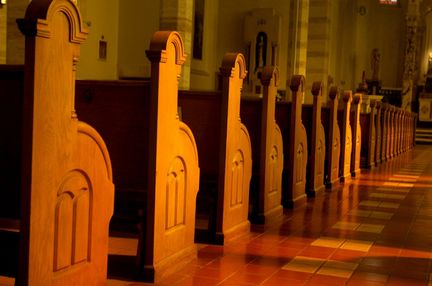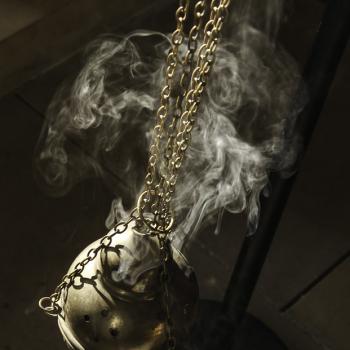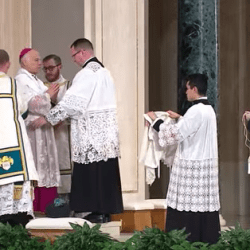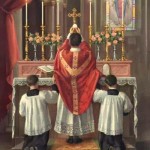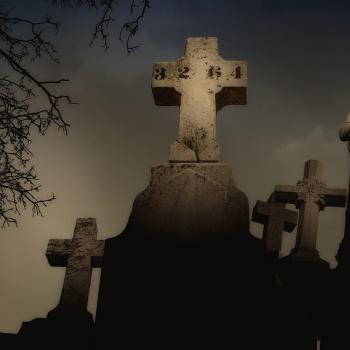You would think most Catholics knew this already — but considering the paltry Mass attendance (25% or so in the U.S.), maybe this needs to be driven home.
From CNA:
In a pastoral letter for the Solemnity of Corpus Christi, Archbishop Leo Cushley of St. Andrews & Edinburgh stressed the importance of the Sunday Mass obligation for Catholics.
“It is true that many people think of Sunday as just part of the weekend, a welcome break from the usual routine, and perhaps a day for family, or sporting activities,” the UK archbishop said in the letter.
“Naturally, it’s good to relax and make time for these things, but our culture has largely forgotten that Sunday is a weekly holiday because of its meaning as the Christian holy day,” he continued.
Cushley went on to emphasize the importance of attending Sunday Mass. He noted that missing Mass due to extraordinary circumstance, such as an illness, is acceptable, but under normal circumstances, “attending Mass on Sunday is a solemn and binding obligation.”
“If we deliberately fail in this matter, it is a grave sin and we must go to confession before receiving communion again,” he said.
From the catechism:
The Sunday obligation
2180 The precept of the Church specifies the law of the Lord more precisely: “On Sundays and other holy days of obligation the faithful are bound to participate in the Mass.” “The precept of participating in the Mass is satisfied by assistance at a Mass which is celebrated anywhere in a Catholic rite either on the holy day or on the evening of the preceding day.”
2181 The Sunday Eucharist is the foundation and confirmation of all Christian practice. For this reason the faithful are obliged to participate in the Eucharist on days of obligation, unless excused for a serious reason (for example, illness, the care of infants) or dispensed by their own pastor. Those who deliberately fail in this obligation commit a grave sin.
2182 Participation in the communal celebration of the Sunday Eucharist is a testimony of belonging and of being faithful to Christ and to his Church. The faithful give witness by this to their communion in faith and charity. Together they testify to God’s holiness and their hope of salvation. They strengthen one another under the guidance of the Holy Spirit.
2183“If because of lack of a sacred minister or for other grave cause participation in the celebration of the Eucharist is impossible, it is specially recommended that the faithful take part in the Liturgy of the Word if it is celebrated in the parish church or in another sacred place according to the prescriptions of the diocesan bishop, or engage in prayer for an appropriate amount of time personally or in a family or, as occasion offers, in groups of families.”
Any questions?

